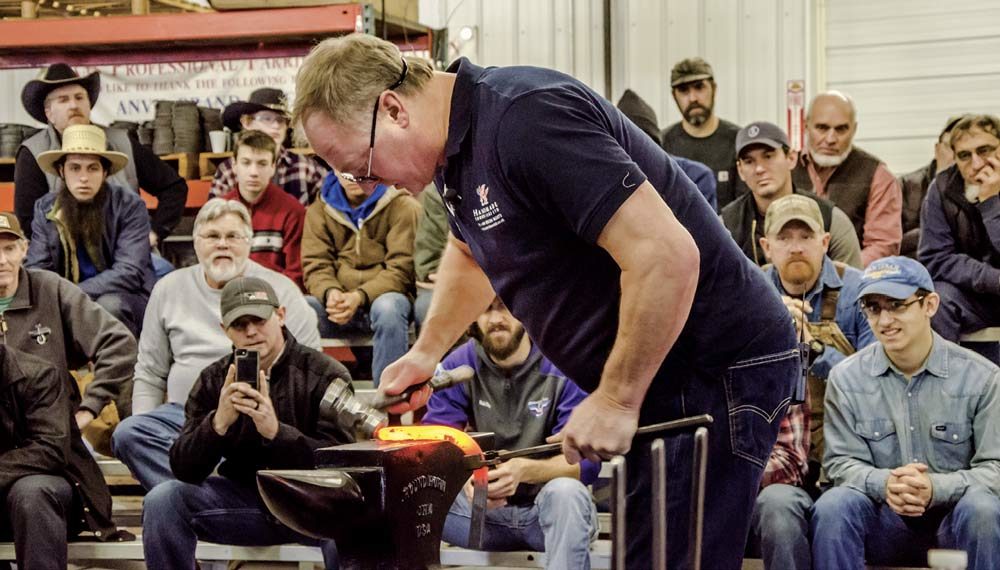So, you’ve graduated farrier school or finished an apprenticeship and are ready to launch your own farrier business. You might be thinking, “What are my next steps? How can I stand out from other farriers? What does it take to run my own business?”
You’re not alone. Many farriers have these same questions as they begin their careers. Running your own business may seem daunting, but if you are aware of common business mistakes other new farriers make, you can avoid them and start off on the right foot.
Learning shouldn’t stop after you’ve graduated, though. Many farriers make the mistake of not working on their professional development and getting their name out there.
Farrier Takeaways
- Communicate and behave in a professional manner to show your clients you are qualified. This will also help you earn your clients’ confidence.
- When starting out, new farriers are often slow. Don’t skip steps in order to save time.
- Apply for a federal self-employment and tax number. In addition, be aware of your state business and sales tax laws to avoid potential legal problems.
Richard Duggan, director of the Minnesota School of Horseshoeing in Ramsey, Minn., says that new farriers should apprentice with an established farrier after they graduate and also establish a professional development plan. They should seek certification through the American Farrier’s Association and “be active, be visible” by attending farrier/vet clinics, workshops, conventions and other horse events. The more events and workshops you attend, the more visible you will become in the farrier community. You’ll also be furthering your education by keeping up-to-date with the latest equine-related news and scholarship.
A farrier’s behavior is just as important as their skill level when establishing their business. When on-site and interacting with clients or potential clients, present yourself in a professional manner. When Mark Plumlee was starting his farrier career, he received advice that rings true today.
“The advice I got from my mentor when I was 17 years old was ‘learn to use your anvil, and show up on time,’” says Plumlee, who co-owns Mission Farrier School with his wife Karen. “He was right. Within a year, I had all I could do. So, return calls promptly. There are all kinds of ways to communicate these days — telephone, text, email, social media. Make it a point to communicate within 24 hours. Be punctual and don’t overbook.”
Communication, though, doesn’t always involve the information that you are delivering. It’s important to be a good listener.
Don’t skip steps to save time …
“Don’t try to sound smarter than you are,” Plumlee says. “If you cannot give a complete answer, don’t be afraid to say, ‘I don’t know, but I’ll get back to you on that.’ People will respect that.”
Once you’re out on your own, it’s important to use your education.
“Don’t skip steps to save time,” he says. “The top farrier schools all teach a pre-shoeing evaluation and good forging skills. When new farriers enter the profession, they are slow, of course, and they probably should be. Being thorough while being efficient can only come through experience. Practice your forging skills and shoe shaping while you are building your clientele.”
It’s equally important to know your horsemanship limits when dealing with unruly horses.
“There are challenging horses out there and if you are not a good student with your horsemanship skills, send your client to trainers who can make a difference,” Plumlee says. “If you get hurt right out of the gate, you won’t get to practice what you have learned, and your livelihood depends on that.”
Since farriers work by and for themselves, you need to be aware of how to establish your farrier business.
“Apply for your federal self-employment and tax number, [and] be aware of your state business and sales tax laws,” says Duggan.
Additionally, consider setting up a credit card account and ask your clients to pay right away, so that you can establish accountable and reliable clients.
Being aware of mistakes other farriers have made and actively working to try to avoid them will give you a huge leg-up when starting your journey as a farrier. Establishing a successful business takes time but following these business tips will help you stand out from others and allow you to have a long, prosperous career.







